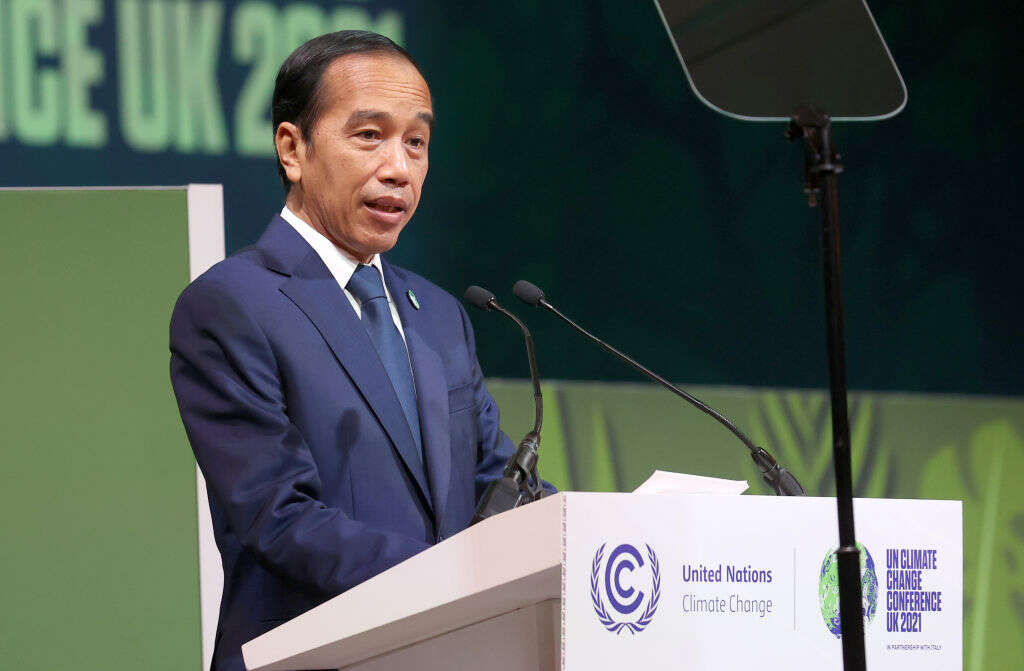

- Indonesia is keen to be the second nation to secure a Just Energy Transition Partnership.
- As part of its efforts, the government has put together a transition plan requiring $1.3bn of private capital.
- The influence of the mining sector may prove a serious barrier for many investors.
John Kerry, the US special climate envoy, has been working hammer and tongs in the build up to Cop27 to gather support for a new system whereby governments would earn credits for cutting their power sector’s emissions. The credits could then be sold to companies to offset their own output with capital recycled back into more green projects.
Kerry’s concept has been met with some pushback – many doubt carbon credits achieve actual emissions reductions – but its internal logic is sound; owners of public and private capital may be more willing to support projects where provable action has been made by a state actor to cut emissions.
The former US Secretary of State is acutely aware of the need to mobilise private capital to emerging nations, many of whom are reliant on coal to power their economies. Housed under what have been dubbed Just Energy Transition Partnerships (JETPs), a first deal of this type was inked last year at Cop26, an $8.5bn package struck with South Africa to support the overhaul of the country’s energy system.
But there is desperate urgency to get more JETPs over the line. Without them many emerging markets face huge funding gaps from which it will be extremely difficult to make a dent in their environmental aspirations.
Indonesia is a prime example and potentially an even more important test case than South Africa given its global role in the coal industry and its own geography.
Keen to secure its own JETP, the archipelagic country is at high risk of the potential devastating effects of climate change and needs a lot of money to mitigate it. Indonesia’s own annual climate-adjusted infrastructure financing needs between 2016 and 2020 were estimated at $74bn on average, with an annual infrastructure financing gap of $51bn, according to Asian Development Bank analysis.
The world’s 15th largest economy is fuelled domestically and internationally on coal, it’s two largest export markets are China and India. Many of its coal-fired power stations are fairly new and some are not due for decommissioning until 2055; shutting them down prematurely (or failing to repurpose them) would have devastating effects on employment. The coal sector accounts for nearly 8% of GDP.
Indonesia’s credibility on the line
However, Indonesia’s president Joko Widodo has staked his country’s legacy on transitioning towards renewable energy. The country has committed to reduce carbon emissions by 29% by 2030. Interestingly, this figure jumps to 41% if the country can secure international finance support, something it is extremely keen on acquiring.
And much to its credit, the Widodo government has worked hard to put forward an investment plan to attract capital and begin the process of weaning itself off coal. Published on October 3, the CIF Accelerating Coal Transition: Indonesia Country Investment Plan provides an invaluable insight into the what is at stake for a nation like Indonesia. It’s not just about building solar parks; it’s about transitioning millions of people out of a sector that has put food on their tables for generations.
In essence, the proposed plan seeks to raise $4.2bn in public and private capital to speed up the retirement and repurpose of a handful of coal-based power plants, creation of dispatchable renewables energy and ensuring a just economic transition. It’s a test case to prove the country’s sincerity to transition and its ability to do so.
Needing private capital
Although the majority of capital, in the form of grants, credit facilities, sustainability-linked loans, will come via the development banks, $1.35bn is needed from the private sector in the form of co-financing. Offshore investment into Indonesia is far from novel, but there is certainly an investor premium for entering the market. A volatile rupiah has long been a worry for many, for example.
That said, the banking sector has been active in pushing out new and exciting transactions. In September, for example, state-owned lender Bank Rakyat Indonesia launched South-East Asia’s first sustainability-linked loan from the financial institutions sector. Albeit linked more to social issues, the $1bn deal was underpinned by a host of international banks, including HSBC and Citi.
Indonesia’s appetite to innovate is to its credit, but attracting the foreign capital will prove hard. The difficulty will be in striking the right price for the risks involved. Another problem the Indonesian government faces is getting owners of coal-fired power plants to play ball with Widodo’s grand vision.
Unsurprisingly, the mining sector in Indonesia is influential and it’s state run national electricity utility Perusahaan Listrik Negara, whose fleet generates around 33GW of energy, is under no obligation to shut gates – both the government and any third party must put a financial offer on the table that compensates it appropriately. Equally, with Indonesia’s energy needs nicely met for the next decade, renewable energy will be more of a nice to have for the foreseeable.
As the investment plan states: “Without an actual financial incentive, no amount of political will would be sufficient to accelerate the first set of [coal plant] retirements and repurposing projects.”
But political will is what is required right now. With Cop27 in full swing and Indonesia hosting the G20 Summit in Bali in November, the window of opportunity to convince the world that the fourth most populous country is not only dedicated to transition, but that it has a credible plan to make it work is open now.






